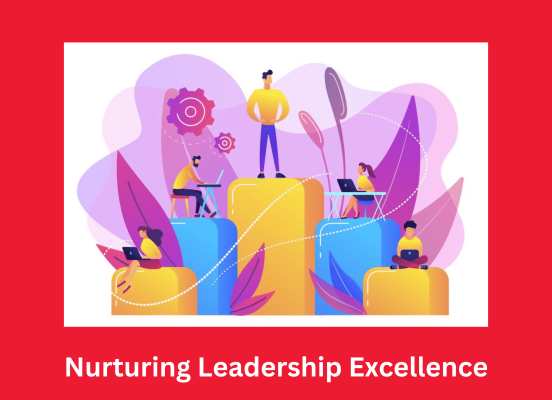

In the dynamic landscape of professional growth, the journey from being a proficient individual contributor to a competent leader is marked by a transformative process of leadership development. As professionals ascend the ranks and assume positions of greater responsibility, cultivating effective leadership skills becomes not just desirable but imperative. Leadership transcends mere management; it embodies the ability to inspire, influence, and guide others towards shared goals, fostering a culture of collaboration, innovation, and excellence. In this comprehensive exploration, we delve into the intricacies of leadership development, unveiling the core competencies, strategies, and best practices that underpin successful leadership in the modern workplace.
At its essence, leadership development entails a deliberate and systematic process of honing one's abilities, attitudes, and behaviors to become an effective leader. It encompasses a multifaceted array of skills, ranging from communication and decision-making to emotional intelligence and strategic thinking. As professionals progress in their careers, they must recognize the pivotal role that leadership plays in driving organizational success, inspiring teams, and navigating complex challenges. By investing in leadership development, individuals not only unlock their full potential but also empower others to thrive and excel in a collaborative work environment.
Communication stands as the cornerstone of effective leadership, serving as the linchpin for fostering trust, alignment, and clarity within teams. Leaders must master the art of articulating a compelling vision, conveying expectations, and providing constructive feedback in a manner that resonates with diverse audiences. Whether it's delivering presentations, facilitating team meetings, or engaging in one-on-one conversations, effective communication empowers leaders to inspire confidence, foster collaboration, and cultivate a culture of transparency and accountability. By honing their communication skills, leaders can bridge divides, resolve conflicts, and foster a sense of belonging and camaraderie within their teams.
Decision-making prowess is another hallmark of effective leadership, distinguishing adept leaders from their counterparts. Leaders are often tasked with making tough decisions under conditions of uncertainty, ambiguity, and competing priorities. They must possess the ability to analyze complex situations, weigh alternative courses of action, and make sound judgments that align with organizational goals and values. Effective decision-making requires a blend of analytical thinking, emotional intelligence, and strategic foresight, enabling leaders to navigate risk, seize opportunities, and drive positive outcomes. By cultivating decision-making skills, leaders instill confidence in their teams, inspire trust, and engender a culture of innovation and adaptability.
Team management lies at the heart of leadership development, encompassing the ability to inspire, motivate, and empower individuals to achieve collective goals. Leaders must adeptly navigate the dynamics of team composition, fostering a culture of diversity, inclusion, and collaboration that harnesses the unique strengths and perspectives of each team member. Effective team management entails setting clear expectations, delegating tasks, providing mentorship and support, and fostering an environment of mutual respect and trust. By cultivating strong interpersonal relationships, recognizing and leveraging individual talents, and promoting a shared sense of purpose, leaders foster a high-performing team culture that drives organizational success.
Emotional intelligence emerges as a critical component of leadership development, enabling leaders to navigate complex interpersonal dynamics, inspire trust, and foster authentic connections with their teams. Leaders with high emotional intelligence possess self-awareness, self-regulation, empathy, and social skills, allowing them to navigate challenging situations with grace and composure. They are attuned to the emotions and needs of others, adept at managing conflict, and skilled at building rapport and trust. By fostering a culture of psychological safety and empowerment, emotionally intelligent leaders create an environment where individuals feel valued, supported, and motivated to contribute their best work.
The strategic thought is necessary to good leadership because it helps leaders to foresee future developments, appraise opportunities and develop a strategy in line with the company’s targets. In addition to this , for someone to be a good leader, they should also have knowledge about wide business environment that include market structure as well as its dynamics dynamics of competitors on one hand and new information technologies on another hand.
Mentorship and coaching are important for the growth of leaders. They provide guidance, support and advice to new leaders drawn from successful mentors. Mentorship is based on mutual trust, respect and learning while coaching is centered on personal growth
Leadership development should be viewed as a change traversed by every person instead of just a process; it turns people into leaders with strong vision who can cause others to act, deliver results in the organisation as they handle collective dilemmas. This happens through fostering of good communication skills which involve both written and oral information, making choices that are sound because they are based on facts rather than emotions alone; leading across global multi-generational teams remains challenging without being aware of other’s strengths and weaknesses when working together or handling them individually.